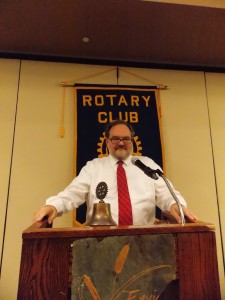Dr. John Doucet on love bugs
By: Justin Terrebonne
Dr. John Doucet is the Dean of the College of Sciences at Nicholls State University, where he is also Distinguished Service Professor of Biological Sciences, McIlhenny Professor of Human and Environmental Genetics, and Director of the University Honors Program. He is a Graduate of South Lafourche High School, Nicholls State University, and LSU Medical Center in New Orleans. He is the first Certified Public Health Geneticist in Louisiana. At Nicholls, he is a genetics researcher and educator, specializing in genetic diseases in Louisiana families and the co-editor of the website Genetics and Louisiana Families. With that, Dr. Doucet is well informed on the topic of “Lovebugs.”
Some interesting facts presented:
- Female Lovebugs are larger due to the ability to carry up to 1000 eggs and males have bigger eyes so they can find a female to mate to
- Once mated, the female is in charge and slowly consumes the male to feed the eggs
- Lovebugs are alive all year long and spend most of their time in caterpillar form eating the decaying layer of grass right below the sod in your yard. They only live as adults for three to four days until they lay eggs and the cycle starts again.
- Lovebugs are native to Costa Rica and have slowly migrated through the southeast with the emergence of highways
- They are attracted to more than cars. Factors such as temperature, rainfall, highways and homes influence their population as the emittance of chemical “aldehydes” and vibration are stimulus for these insects which they are drawn to.
- Their biological name is “plecia nearctica” and are also referred to as black marsh fly or hurricane fly

